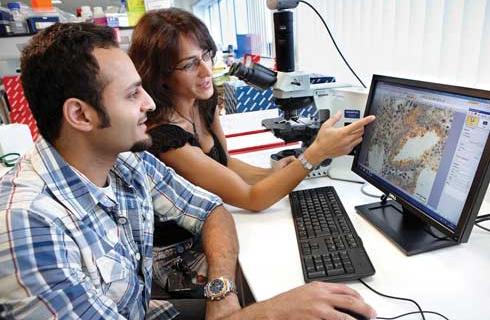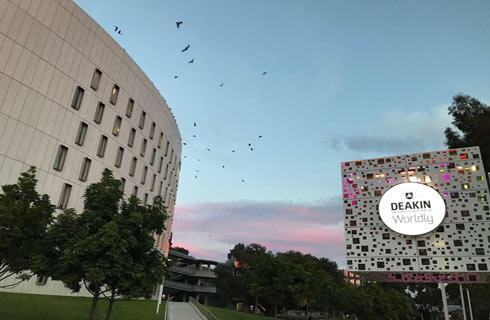国际学生入学条件
GPA requirement: Students must satisfy the university’s application criteria, which include a grade point average of at least 3.0 (or the equivalent) in undergraduate course work and in all postgraduate-level or graduate course work.
To be eligible, an applicant must hold or expect to hold prior to matriculation a bachelor’s degree from a regionally accredited U.S. college or university, or an equivalent degree from a recognized non-U.S. institution of higher education.
All international applicants are required to submit one transcript or academic record from each institution of higher education attended, including any study abroad or exchange programs, summer programs, and non-degree work and extension programs. Applicants may submit unofficial copies of transcripts while applying for admission. However, admitted students are required to submit official transcripts in order to enroll at UHM. Official transcripts or academic records must be sent to Graduate Division Student Services directly from the issuing institution(s), or in sealed institutional envelopes if submitted with the application.
Applicants are required to submit one transcript from each post-secondary institution attended, including any study abroad or exchange programs, summer programs, and non-degree work and extension programs. Applicants may submit unofficial copies of transcripts while applying for admission. However, admitted students are required to submit official transcripts in order to enroll at UHM.
TOEFL iBT - Minimum score 61 TOEFL iBT
IELTS- Minimum score is 6.00 for the IELTS Academic overall band test results.
展开
IDP—雅思考试联合主办方

雅思考试总分
6.0
- 雅思总分:6
- 托福网考总分:60
- 托福笔试总分:160
- 其他语言考试:NA
CRICOS代码:
申请截止日期: 请与IDP联系 以获取详细信息。
课程简介
As part of the MS degree, our program emphasizes - Acquisition of a broad knowledge of astronomy and familiarity with both observational and theoretical techniques,<br>Exposure to a variety of advanced and specialized topics in modern astronomy,<br>Extensive hands-on research, including supervised research projects undertaken by all MS students,<br>Experience presenting talks reviewing the literature and describing new research.<br>The core of the graduate astronomy curriculum is a series of 600-level three-credit courses that provide a broad base to which specialized knowledge can later be added. PhD students entering with a Bachelor's degree typically take at least six of these courses, including ASTR 633 (Astrophysical Techniques). Most courses are taught on a two-year cycle, but ASTR 699DR (to become ASTR 601) and ASTR 635 are currently offered each Fall.<br><br>In addition, there are a number of 700-level courses, most consisting of specialized seminars on topics closely related to ongoing research at the Institute. These may be given for 1-3 credits. Most courses change from year to year and some are taught by visiting scientists, seven 700-level seminars, ASTR 740, 750, 758, 760, 777, 790 and 701 are presently offered on a regular basis. Students need to take at least three credits of 700-level seminar courses.<br>Normally students take all their courses within the astronomy program. However, a student may ask the graduate chair for permission to substitute a course from another program, such as physics, mathematics, or planetary geosciences, so long as the substitution forms part of a coherent plan of study.<br>There's no substitute for real astronomical research experience early in one's graduate career. The IfA graduate program puts considerable emphasis on research, even during the first two years when students are also taking formal courses. This research is normally done in collaboration with a faculty advisor as Directed Research (ASTR 699).<br><br>During their first semester, students are required to take ASTR 699DR, a directed reading course surveying ongoing research at the IfA. During their second, third and fourth semesters students normally carry out two substantial pieces of research, usually with two different faculty advisors. An independent oversight committee (the GROG) assists in the selection of research topics, and offers advice and feedback throughout the pre-thesis research period. The GROG is also responsible for evaluating papers and presentations. The 699 research projects are subject to a code of conduct.
展开







 预科
预科 奖学金
奖学金 实习机会
实习机会 在校学习
在校学习 跨境学习
跨境学习 校园授课-线上开始
校园授课-线上开始 在线/远程学习
在线/远程学习













 滑铁卢大学
滑铁卢大学

 曼尼托巴大学
曼尼托巴大学

 曼尼托巴大学
曼尼托巴大学

 曼尼托巴大学
曼尼托巴大学

 曼尼托巴大学
曼尼托巴大学

 约克大学
约克大学









 美国
美国
